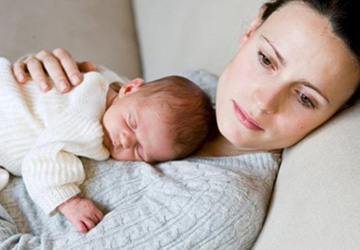Postnatal Depression (PND) is common. It affects one in seven new mothers. PND occurs following the birth of a baby. Having a baby can be a greatly joyous and exciting experience. However, it can also be an overwhelming, exhausting and highly pressured experience. This is often because of the significant changes that occur with the arrival of a child. Many people do not realise the huge changes that come about including changes in duties, finances, relationships and feelings. It is common for parents to feel anxious, overwhelmed and/or that they are not coping with the adjustment of having a child.
The signs of PND are similar to those displayed by people with general depression. Symptoms include:
- a lack of motivation and energy
- persistent feelings of sadness or emptiness
- diminished pleasure in activities
- changes in appetite or eating habits
- changes in sleeping patterns
- fatigue
- feeling overwhelmed, guilty, hopeless and / or worthless
- feeling unable to cope with daily responsibilities
- withdrawal from social circles
- difficulty concentrating or making decisions and/or
- suicidal thoughts
We are conditioned to believe the advertisements of the smiling gurgling baby and the ecstatic mum in her immaculate dress and perfectly tidy home and that being a mother is the “most natural thing in the world”. Don’t be fooled. This clearly isn’t the whole story.
New mothers are often told or expected to simply “get on with it” or to just cope but it’s not that simple or easy. Many women feel ashamed and/or are unable to get the support they need when they are not coping. Chantal Kayem understands this as well as how and why you may be experiencing these strong negative feelings and she is here to help you.
